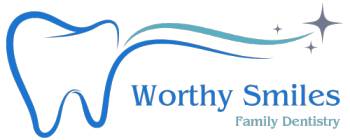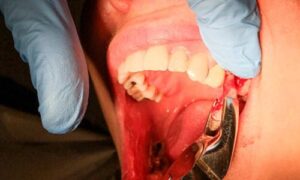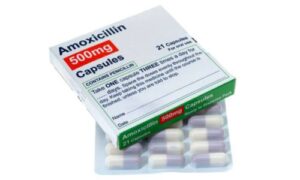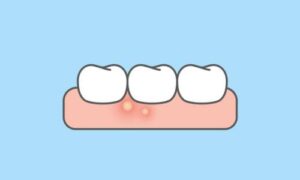The autonomy of your teeth is an essential part of your oral health. Your teeth are designed to be self-sufficient and self-regulating, meaning they can take care of themselves without outside intervention. The anatomy of your teeth is a complex and fascinating subject. Your teeth are made up of several different parts, each of which plays a vital role in your mouth’s overall health and function. This autonomy is achieved by combining the enamel, dentin, pulp, root, and gums.
Enamel
Enamel is the outermost layer of your teeth and is the hardest substance in the human body. It is composed of calcium and phosphate and helps protect your teeth from decay and damage.
The best way to cure enamel damage is to practice good oral hygiene and visit your dentist regularly. Brushing and flossing your teeth twice a day, using fluoride toothpaste, and avoiding sugary and acidic foods can help to prevent enamel damage. Additionally, your dentist can provide fluoride treatments, sealants, and fillings to help repair and protect your enamel.
Taking care of your enamel has many benefits. It helps to protect your teeth from decay and damage and can help to prevent cavities and other dental problems. Additionally, taking care of your enamel can help to keep your teeth looking and feeling healthy and strong.
Dentin
Dentin is a complex, yellowish material that makes up the bulk of a tooth. It is located beneath the enamel and is softer than enamel. Dentin is made up of microscopic tubules that contain nerve endings, which can cause sensitivity when exposed. Good oral hygiene is essential for maintaining healthy dentin. Brushing twice a day with a soft-bristled toothbrush and flossing daily can help remove plaque and bacteria that can cause decay. Regular visits to the dentist for professional cleanings and checkups can also help keep the dentin healthy. Using fluoride toothpaste and mouthwash can also help protect the dentin from decay. Fluoride helps strengthen the enamel, which can help preserve the dentin from erosion.
Additionally, fluoride can help remineralize dentin, which can help reduce sensitivity. Finally, avoiding acidic foods and drinks can help protect the dentin from erosion. Acidic foods and drinks can weaken the enamel, which can expose the dentin and cause sensitivity.
Pulp
The pulp of teeth is the innermost layer of the tooth, which contains the nerve, blood vessels, and connective tissue. It is responsible for providing nutrients and sensation to the tooth. To care for the pulp of teeth, it is essential to practice good oral hygiene, such as brushing and flossing regularly and visiting the dentist for regular checkups and cleanings. Additionally, avoiding sugary and acidic foods and drinks can help protect the pulp of teeth from decay. The advantage of teeth pulp care is that it can help to prevent tooth loss. Removing the infected or decayed pulp can save the tooth from further damage and decay. This can help to preserve the tooth and prevent it from being lost due to decay or infection.
Root
The root of your tooth is part of the tooth embedded in the jawbone and is not visible in the mouth. It comprises the root canal, which contains the dental pulp, surrounding cementum, and periodontal ligament. To care for the root of your tooth, it is essential to practice good oral hygiene habits such as brushing twice a day, flossing daily, and using mouthwash. Additionally, it would help if you visited your dentist regularly for checkups and cleanings. Your dentist can also help to identify any potential problems with the root of your tooth and provide treatment if necessary.
Tooth Anatomy: Diagram, Structure and Function, Related Condition (healthline.com)
Gum
Finally, the gums are the soft tissue that surrounds your teeth and helps to protect them from bacteria and other harmful substances. Good gum care is essential for maintaining healthy teeth and gums. The gums are made up of the gingiva, the pink tissue you can see when you open your mouth. It comprises several layers of tissue, including the mucosa, the innermost layer in contact with the teeth. The gums provide a seal around the teeth to protect them from bacteria and other debris.
They also help keep the teeth in place and support the jawbone. Brushing and flossing your teeth twice a day helps to remove plaque and bacteria from the teeth and gums. It would help if you visited your dentist regularly for professional cleanings and checkups. Additionally, eating a balanced diet and avoiding sugary and acidic foods can help to keep your gums healthy.
Conclusion
These parts work together to keep your teeth healthy and functioning correctly. The autonomy of your teeth also includes the ability to repair itself. The enamel and dentin can improve when your teeth are damaged by forming new mineral layers. This process is known as remineralization and helps to strengthen your teeth and protect them from further damage.
Your teeth can also repair themselves by forming new dentin and enamel. This process is known as dentinogenesis and helps to keep your teeth healthy and strong. The autonomy of your teeth is an essential part of your oral health and should be taken seriously. By taking care of your teeth and visiting your dentist regularly, you can ensure that your teeth remain healthy and strong for years to come.
How To Recover Quickly From A Root Canal Procedure (worthysmiles.com)














